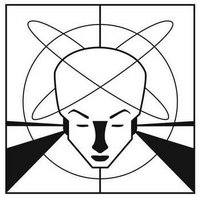Parapsychology.
Parapsychology is the scientific study of certain types of paranormal phenomena, or of phenomena which appear to be paranormal. The term is based on the Greek para (beside/beyond), psyche (soul/mind), and logos (account/explanation) and was coined by psychologist Max Dessoir in or before 1889. Its first appearance was in an article by Dessoir in the June 1889 issue of the German publication Sphinx. J.B.Rhine later popularized "parapsychology" as a replacement for the earlier term "psychical research", during a shift in methodologies which brought experimental methods to the study of psychic phenomena. In contemporary research, the term 'parapsychology' refers to the study of psi, a general blanket term used by academic parapsychologists to denote anomalous processes or outcomes.
The scientific reality of parapsychological phenomena and the validity of scientific parapsychological research is a matter of frequent dispute and criticism. The field is regarded by critics as a pseudoscience. Parapsychologists, in turn, say that parapsychological research is scientifically rigorous. Despite criticisms, a number of academic institutions now conduct research on the topic, employing laboratory methodologies and statistical techniques, such as meta-analysis.[citation needed] The Parapsychological Association is the leading association for parapsychologists and has been a member of the American Association for the Advancement of Science since 1969.
Parapsychology is the scientific study of certain types of paranormal phenomena, or of phenomena which appear to be paranormal. The term is based on the Greek para (beside/beyond), psyche (soul/mind), and logos (account/explanation) and was coined by psychologist Max Dessoir in or before 1889. Its first appearance was in an article by Dessoir in the June 1889 issue of the German publication Sphinx. J.B.Rhine later popularized "parapsychology" as a replacement for the earlier term "psychical research", during a shift in methodologies which brought experimental methods to the study of psychic phenomena. In contemporary research, the term 'parapsychology' refers to the study of psi, a general blanket term used by academic parapsychologists to denote anomalous processes or outcomes.
The scientific reality of parapsychological phenomena and the validity of scientific parapsychological research is a matter of frequent dispute and criticism. The field is regarded by critics as a pseudoscience. Parapsychologists, in turn, say that parapsychological research is scientifically rigorous. Despite criticisms, a number of academic institutions now conduct research on the topic, employing laboratory methodologies and statistical techniques, such as meta-analysis.[citation needed] The Parapsychological Association is the leading association for parapsychologists and has been a member of the American Association for the Advancement of Science since 1969.

0 Comments:
Post a Comment
Psychologist